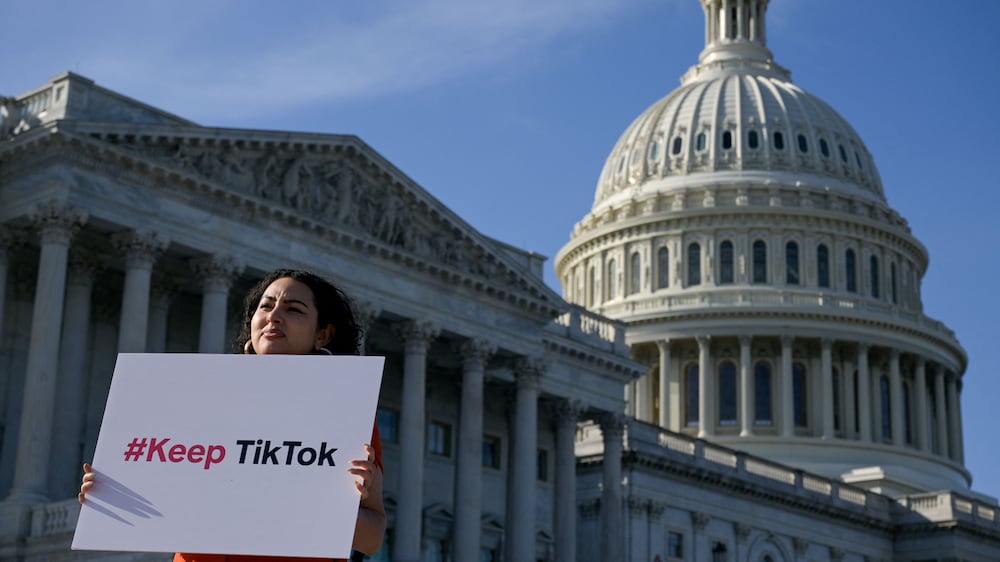TikTok is suing the US government over a new law that will force its Chinese parent company ByteDance to divest the popular video app or face a ban across the country, which it says would breach First Amendment rights.
The lawsuit marks the first legal challenge since Congress passed the law in April, with TikTok saying the legislation will stifle free speech and hurt creators and small business owners who benefit from the platform, in breach of their rights enshrined in the First Amendment to the US Constitution.
The company previously said it has spent more than $1.5 billion to isolate its US operations and agreed to oversight by American company Oracle, Bloomberg reported.
“For the first time in history, Congress has enacted a law that subjects a single, named speech platform to a permanent, nationwide ban and bars every American from participating in a unique online community with more than one billion people worldwide,” the company said in a filing on Tuesday with the US Court of Appeals in Washington.
The popular short video company alleged the law is so “obviously unconstitutional” that the sponsors of the Protecting Americans From Foreign Adversary Controlled Applications Act are trying to portray it not as a ban but as a regulation of TikTok's ownership.
ByteDance has nine months to sell the platform but the company said it has no plans to sell, according to the Associated Press.
The legal battle comes after President Joe Biden signed into law a Ukraine-Israel aid package that includes the TikTok provision.
Explained: The battle over TikTok's future in America – video
Explained: The battle over TikTok's future in America

The President signed the law despite his re-election campaign using the platform for reach younger voters.
Former president Donald Trump used an executive order to try to force a sale of the app to an American company or face a ban but his administration also faced legal challenges and judges blocked it from taking place.
“There is no question: the act will force a shutdown of TikTok by January 19, 2025, silencing the 170 million Americans who use the platform to communicate in ways that cannot be replicated elsewhere,” the company said.
TikTok chief executive Shou Chew said in a video on the app the day the bill was signed: “Make no mistake, this is a ban, a ban on you and your voice.
“Politicians may say otherwise but don’t get confused. Many who signed the bill say the TikTok ban is the ultimate goal.”
The fight over TikTok takes place as US-China relations have shifted to that of intense strategic rivalry, especially in areas such as advanced technology and data security, seen as essential to each country’s economic prowess and national security.
Politicians from both US parties, as well as administration and law enforcement officials, have expressed concerns that Chinese authorities could force ByteDance to hand over user data or sway public opinion by manipulating the algorithm that populates users' feeds.
Meanwhile, TikTok and other platforms have been hit with hundreds of lawsuits blaming them for young people becoming addicting to social media and causing mental distress.
Montana became the first US state to enact a law that would ban residents from using the app. In December, a federal judge sympathised with TikTok’s free speech argument in blocking the Montana measure while the legal challenge plays out.






